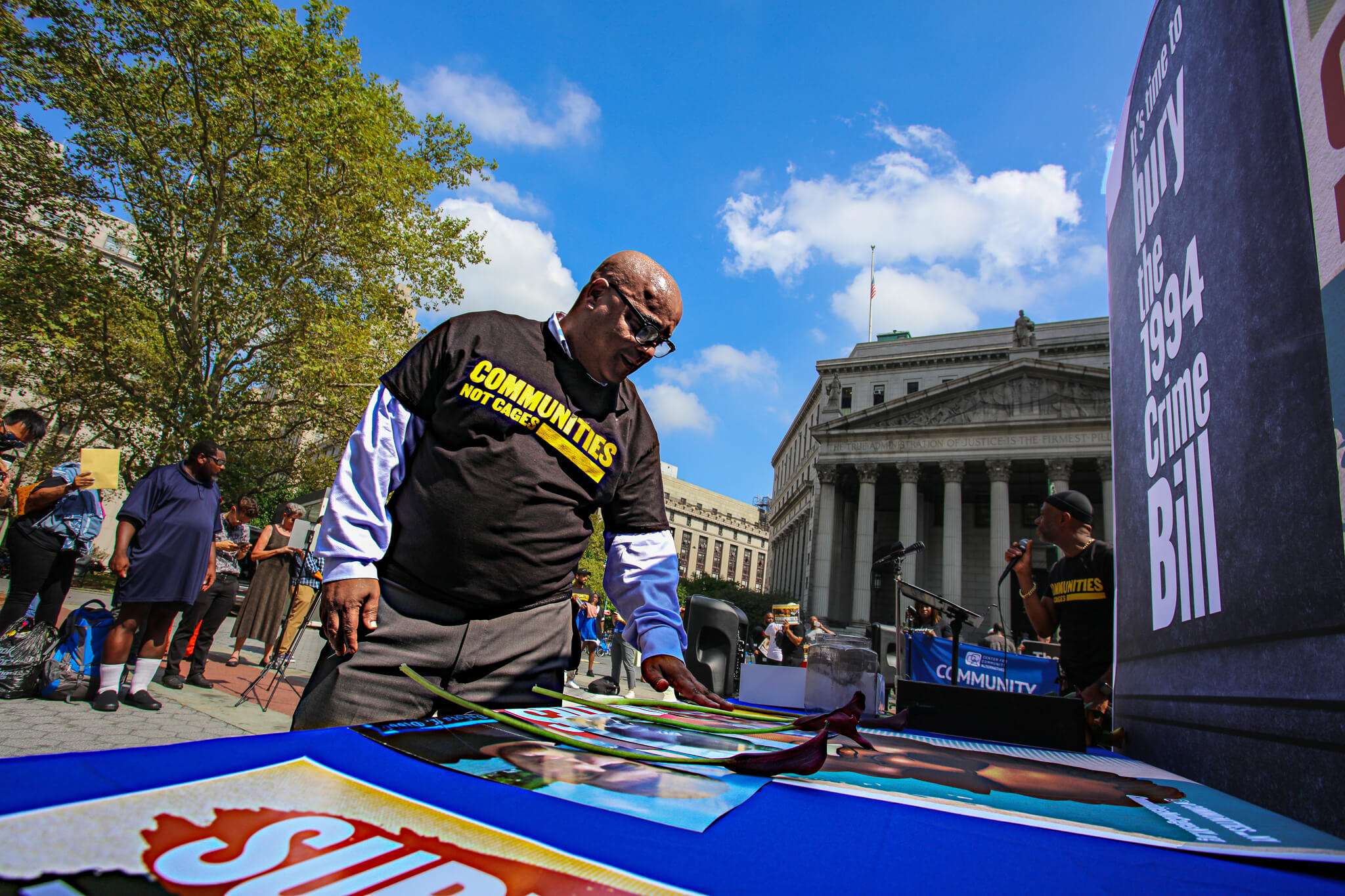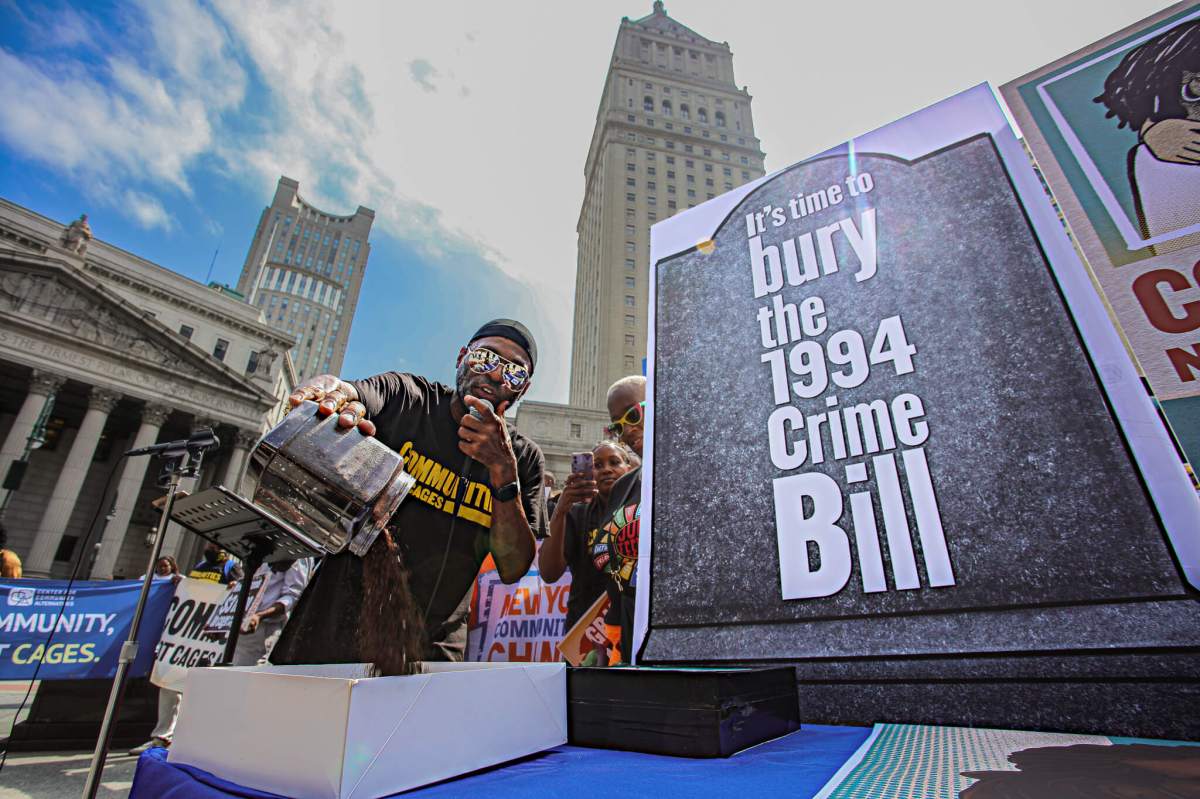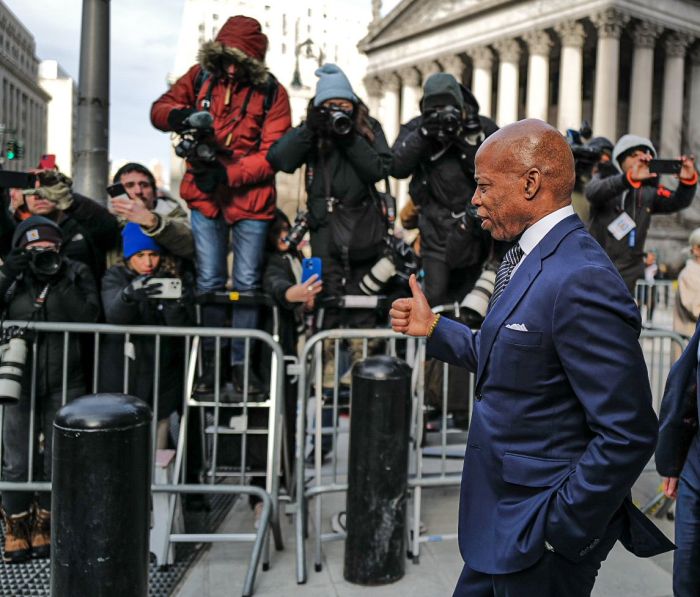The formerly incarcerated and elected officials symbolically buried the 1994 Crime Bill in Foley Square Tuesday afternoon on what marked the act’s 28th anniversary.
The Violent Crime Control and Law Enforcement Act was lauded when a Democratic-led Congress and then-President Bill Clinton enacted it in 1994, but in the three decades that followed, the legislation has been widely blamed among criminal justice advocates for bloating prisons across the country. The legislation created stricter criminal sentences for various offenses, and ultimately led to the creation of more prisons nationwide.
On Tuesday, New York City lawmakers along with advocates from Communities Not Cages — a grassroots campaign led by impacted people incarcerated under the 1994 Crime Bill — held a mock funeral for a law they say has caused them nothing but pain.
“We are here to bury the 1994 crime bill because we know that this bill has been the source of so much death and destruction and pain,” Assemblymember Amanda Septimo said. “We are saying goodbye to the 1994 crime bill today and every other policy that doesn’t recognize the humanity of people.”
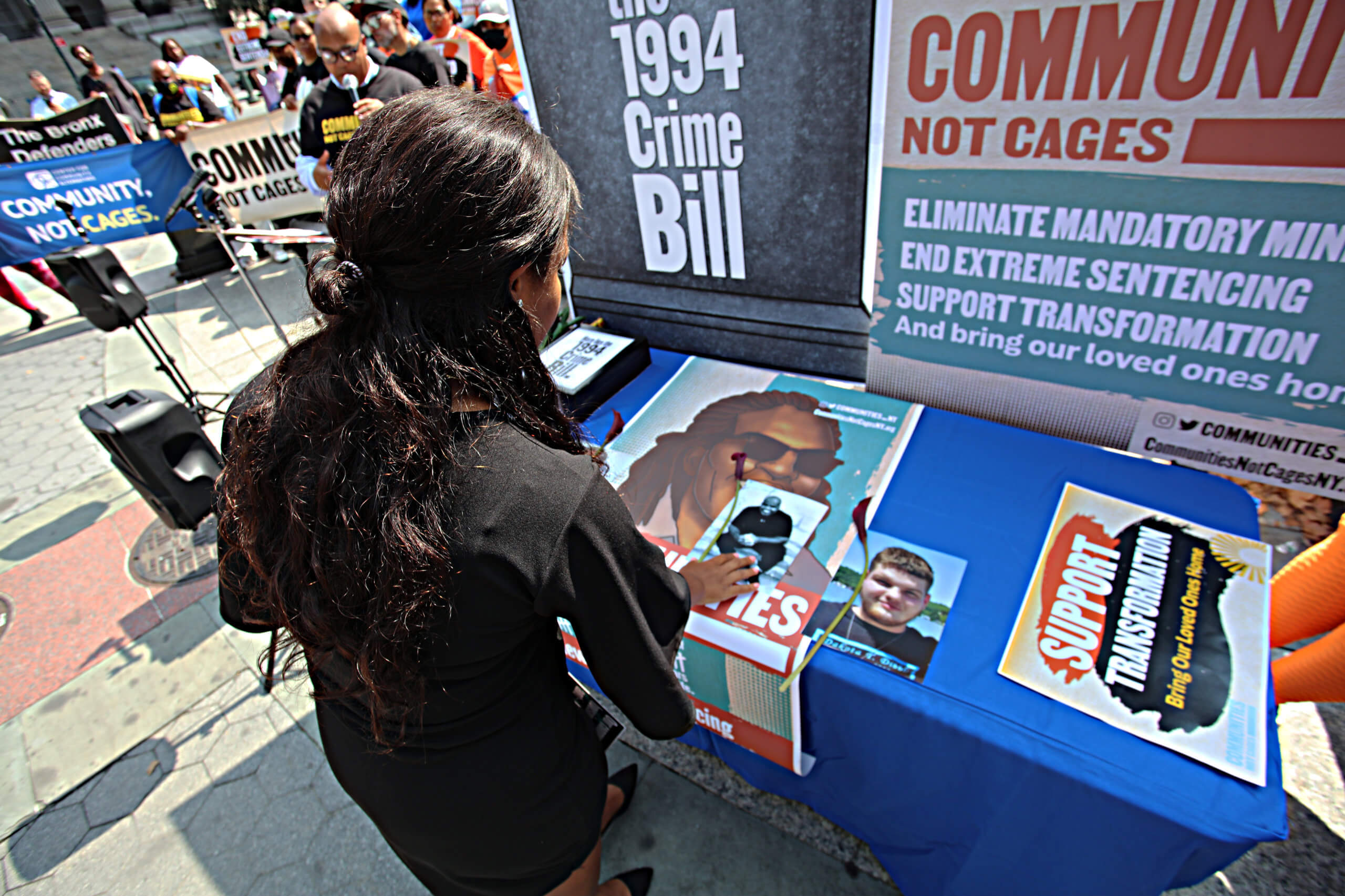
Marvin Mayfield, the director of organizing at the Center for Community Alternatives, literally buried a copy of the bill. Lifting a jar of dirt, he poured it over the sheets of paper to cheers from onlookers. Mayfield joined fellow speakers in deeming the 1994 Crime Bill a racist practice, with some even going as far to call those working in the prison system modern day slavery.
“The ‘94 Crime Bill was driven by racism and a belief in the disposability of Black and Brown people,” Mayfield said. “Right now, over 30,000 people are incarcerated in state prisons. Nearly 75% are Black or Brown. We cannot stand by and allow this harm to continue.”
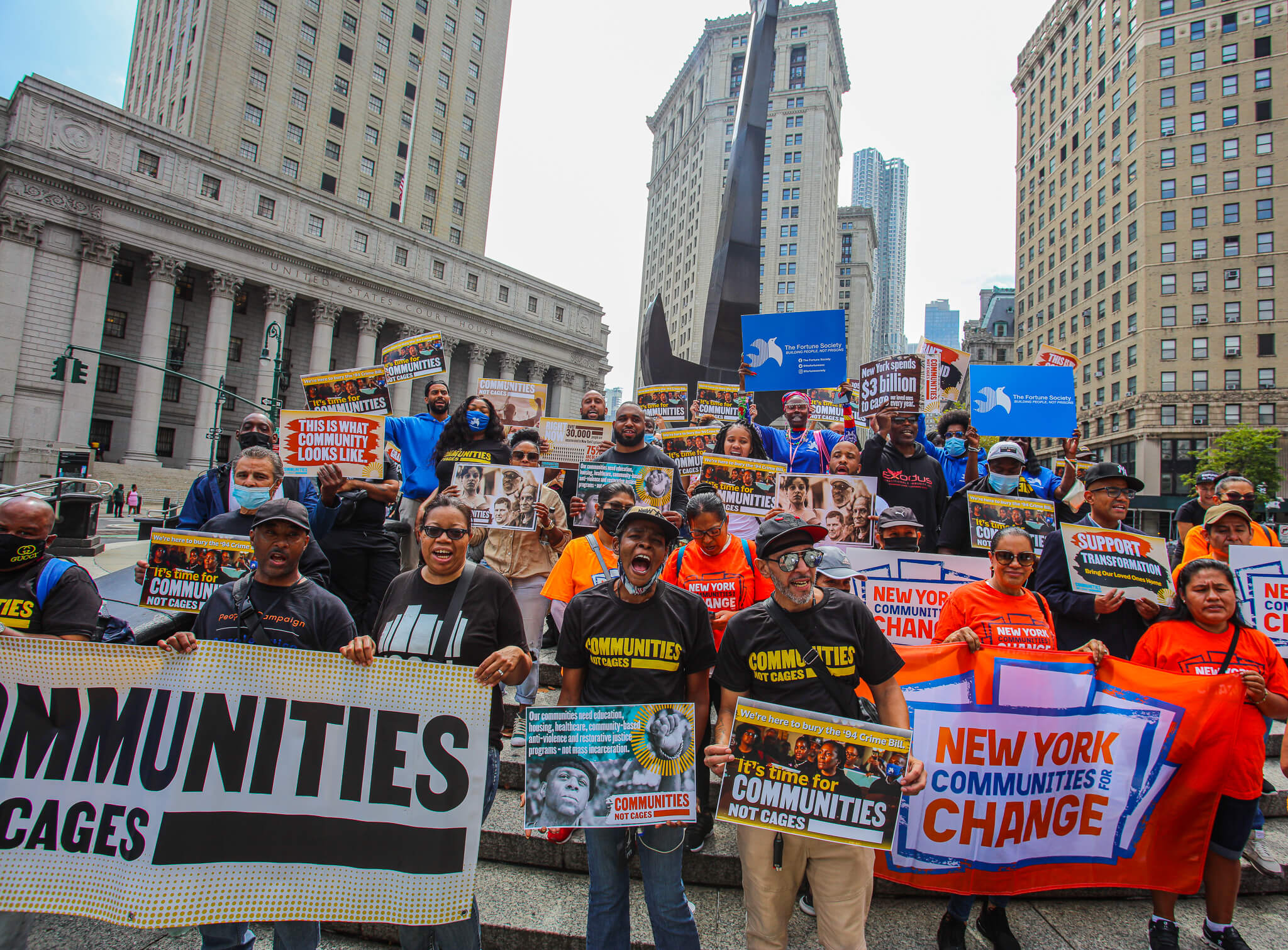
Elected officials, such as Assemblymembers David Weprin and Eddie Gibbs, and more also joined the funeral and even laid flowers for those still serving time on the inside. But as much as the event was about burying the past, it also looked to the future.
The campaign called for the passage of three sentencing reform bills: the Eliminate Mandatory Minimums Act, Second Look Act, and Earned Time Act.
“We are renewing our push for sentencing reform in New York State to undo the harm of decades of unjust and racist sentencing laws. We are fighting to eliminate mandatory minimums to create a second look for judges to review and reconsider sentences,” Gibbs said.
